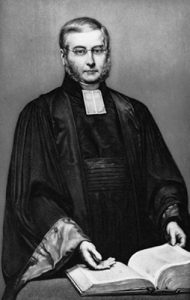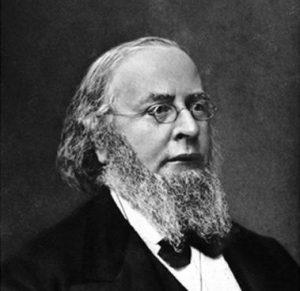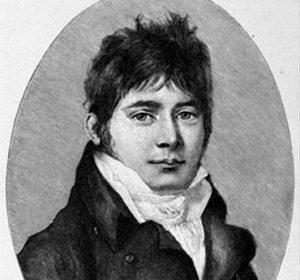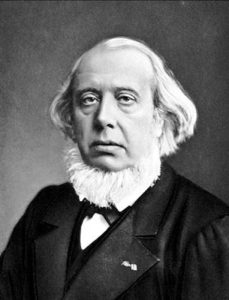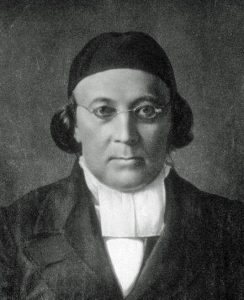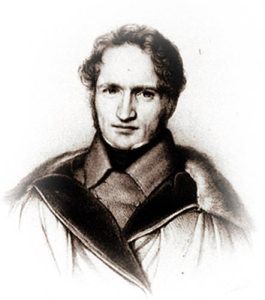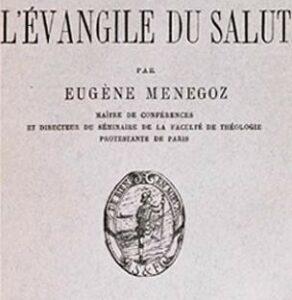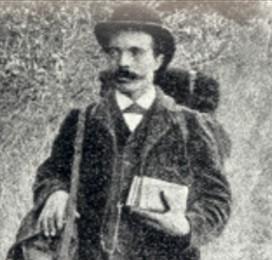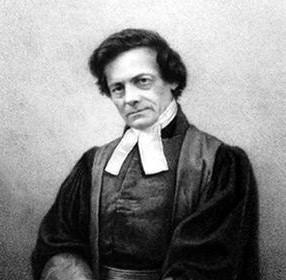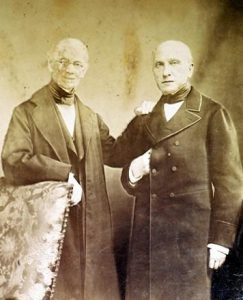A man committed to his times
After reading theology in Geneva and Montauban, and a first pastoral ministry in Amsterdam, he took up the ministry in Paris where he was to spend the rest of his life. A well-educated man, an outstanding speaker, he was one of the distinguished representatives of the liberal movement and collaborated in the founding of Le Lien (The Link).
His aim was to live with modern times – in 1842 he published L’Orthodoxie Moderne (Modern Orthodoxy). Keenly interested in science – in 1847 he published Le Christianisme Expérimental (Experimental Christianity) – his wish was to deal with Christianity as with any other field of knowledge. He wanted theology to be considered as a science.
In fact, he merely proposed an attenuation of traditional doctrines without presenting any scientific justification. He presented no arguments to refute the century’s dogmatic theology but made a selection between what, in his opinion, was acceptable and what was not. His reasoning often seemed to stop short because he had decided, on an a priori, not to pursue its logic, but to remain within the framework of his own concept of Christianity. If he was bold in his writings, he was far less so in his preaching. He mostly preached ethics, and tended to consider theology as a science to be dealt with by specialists. In L’Orthodoxie Moderne (Modern Orthodoxy) he explains that, when a believer does not understand such and such a passage of the Bible, he must simply realize that it was written “for children gifted with higher faculties” (pour des enfants doués de facultés plus élevées). In a sermon entitled “Sanctification of the name of God” he suggests that sanctifying God is simply knowing Him and he adds : “leave such lofty thoughts to such minds as were meant for them by God ; do not aspire for anything beyond your abilities” (laissez de si hautes pensées à des esprits que Dieu a fait pour elles ; n’aspirez à rien au-delà de vos forces). One of his biographers wrote that his preaching could be summed up in the presentation of the Gospel as « a set of precepts and simple truths to be used as a pattern for daily life : (….) Before asking you in what you have believed, the supreme judge will ask you how you have lived” (un ensemble de precepts et de simples vérités pour server de modèle dans la conduite de la vie : (…) Avant de vous demander en quoi vous avez cru, le juge suprème vous demandera comment vous avez vécu).
Although he represented a moderate trend in the liberal movement, the evangelicals reproached him of upholding the ecclesiastical views of extremist liberals. From 1844 onwards he no longer had the right to minister in the protestant church of the village of Batignolles, for the building of which he had been responsible ; and towards the end of his life all the candidates he presented as being his future assistants were refused. At the same time, his son was refused an assistantship and this was considered by his supporters to be sheer harassment. In fact, such hostility may have been due to his political influence and his role during the Second Republic. As a member of the 1848 Assemblée Constituante (Constituent Assembly), and then of the 1849 Assemblée Législative (Legislative Assembly), he had taken part in the drafting of the March 26, 1852 decree creating the Conseil Central des Eglises Réformées (the Central Council of the Reformed Churches). It was feared that this Council would be likely to favour the dreaded liberal trend.

